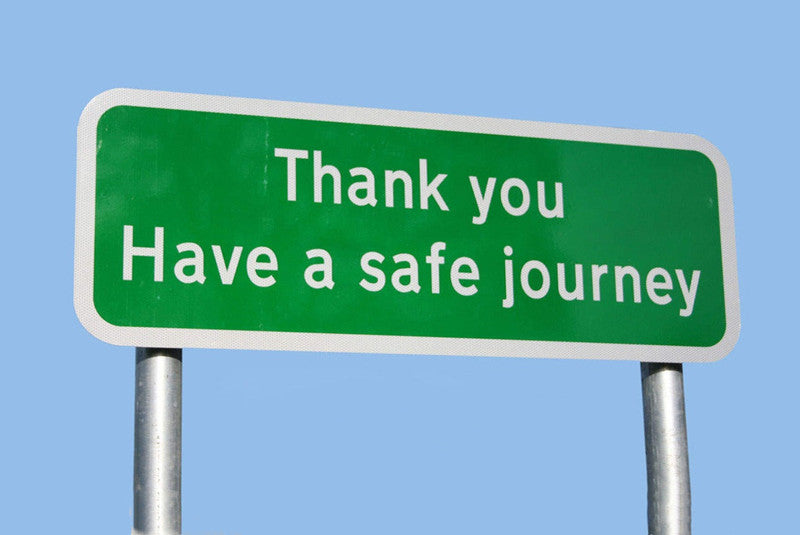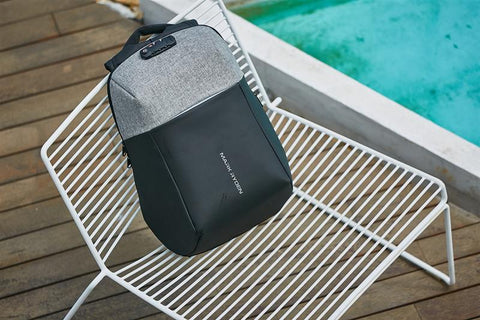To a great extent, the world is a safe place for travelers. However, it’s wise to be prepared for the worst. Every country has its own special ones to watch out for!
Before safe traveling, take those helpful precautions as below to become less of a potential 'target'.
1. Research more information for the hotel you are going to stay
a. Read hotel reviews before booking
You can refer to hotel ratings and reviews on travel APPs or forums. Check whether the hotel you would like to book is rated highly for safety or not. Look at recent reviews to see if any review mentioning theft or security problems. You can also research the neighborhood of the hotel to see if it's safe.
b. Get more informed from TripAdvisor and Google to get a more in-depth overview of what you can expect from the hotel. In short, read as many different reviews of a hotel before you are going to book. You never know a hotel you ordered based on good reviews on a travel website may turn out to be terrible, and this review had been written on other travel APPs.
2. Don't show off your valuables
- Try to keep a low profile. You can easily prevent becoming a victim of a crime by NOT stowing your valuables properly on you. If possible, don’t have fancy stuff or anything worth robbing on you when visiting those less secure destinations.
- Before leaving to travel, spend some time placing stickers or duct tape over your laptop and camera to make them look worn-out. This will lessen the chance of being targeted if a thief is looking for an easy target with newly expensive gears.
- If you're traveling with a lot of technology, make sure to hide them as much as possible. Don't sit outside your booked hotel with your laptop, camera, and hard drive, implying that you have lots of money and are worth targeting. Be wise to keep as much of your technology tools hidden while other people are around.
- Make sure your valuables are not in your big backpack, but you always keep them with you in your smaller day bag which allows you to take it everywhere. Be careful and keep an eye on it!
3. Gear up
a. Use hotel lockers
Ninety percent of the hotels will provide lockers -- use them! You should look to buy a padlock before you leave to travel to use with these lockers, but even if you don't have one you can usually rent padlocks from reception for a small fee.
b. Use padlocks
If your hotel doesn't provide lockers, it's smart to keep your backpack locked with your own padlocks. Alternatively, a portable safe from Pacsafe will ensure your valuables as protected as they can possibly be. This portable safe is made from a material that is splash-proof, so you can be confident your stuff is safe when you leave the room.
c. Use anti-theft travel backpack
An anti-theft bag is like a lock to your home. You need the bag to have stealth zipper design, or some hidden pockets or compartments to hold those important items. You even hope the bag material is hard to cut or rip.
Nayo Anti-theft Shell has an in-built TSA lock to maximumly protect your valuables, such as laptops, tablets, cameras in a safe condition. Hidden pockets under back padding will prevent you from losing the small yet invaluable stuff. It has one main compartment with versatile pockets for both electronics and daily necessities.
4. Try not to stand out as a tourist
Most locals of destination have a love/hate relationship with tourists. Because tourists bring in huge amounts of money but at the same time bring some bad effects: getting stuck on the road and packing out bars and restaurants! Follow the basic etiquette rules to try not to offend local people and culture:
- Keep yourself clean, not stinky. Don't worry too much about appearances. Courtesy, patience, and common sense in a different environment are what matters most.
- If you are in group travel, don't spread out your group members across the entire sidewalk.
- Do not stop at crowded places looking at maps, because you might stop traffic while you're doing so.
- Distribute cash within your group, don't leave all your cash on one person so if one person gets targeted, you all lose money.
- Do not handle large volumes of cash in public and loudly admit not understanding how many euros/dollars (a nation's currency) this bill is. Try to use credit cards as much as possible so that you don't need to take a lot of cash to allure thieves.
- Talk quietly in the metro and buses, no loudly discussing nor disturbing passengers around you.
- Take special care in crowded subways between the most popular tourist destinations and at those crowded places. Look at who is around you and see if there are always the same people around you. Pickpockets will follow and assess their target to see how much attention you pay to what's going on around you. If you are observant they will move onto someone else.
5. Don't fall for the tricks of scammers
- If someone shouted out in English ''There is a pickpocket on board the train'', then the English speaking tourists put a hand on their wallet to make sure it was still there, and they finally wonder why they get pickpocketed. This simple trick will help scammers to identify ALL the wallets of ALL the English speaking tourists.
- DO NOT give money to beggars, including those with small kids, pets, etc. If you give, do not be surprised if you are followed for money.
- DO NOT assist people to change money, do not sign petitions, do not give directions to persons. Ask yourself ''Why do those ''lost'' people ask a tourist like you for directions? Why don't they ask the locals?''
- Ignore anyone who doesn't look like a tourist who asks "Do you speak English?" Don't make eye contact, don't respond. ''Do you speak English?'' is the opening line for lots of scams.
By taking these precautions that are simple and easy to implement, you will dramatically improve your sense of safety and wholeheartedly enjoy your travel.



Share:
How To Find The Best Travel Backpack Style
How to Travel in An Eco-friendly Way